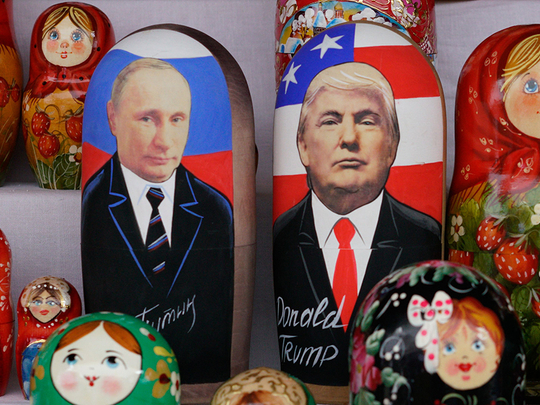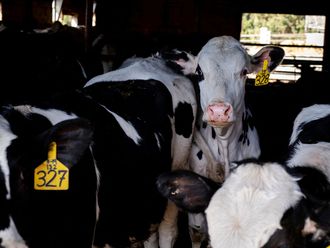
CHEQUERS, England: US President Donald Trump will discuss substantial reductions to nuclear weapons when he meets Russian President Vladimir Putin in Helsinki on Monday.
“If we can do something to substantially reduce them, I mean, ideally get rid of them, maybe that’s a dream, but certainly it’s a subject that I’ll be bringing up with him,” Trump said.
“The proliferation is a tremendous, I mean to me, it’s the biggest problem in the world, nuclear weapons, biggest problem in the world.”
Arms control, Ukraine, Syria and Iran are likely to dominate talks. Pyongyang’s pledge to denuclearise may not top the agenda, but it’s likely to get considerable attention.
Trump president will “absolutely” seek Putin’s help on the matter, according to Benjamin Katzeff Silberstein, associate scholar at the Philadelphia-based Foreign Policy Research Institute. For one, Trump may ask the Russian leader to maintain sanctions on ruler Kim Jong-un’s regime, he said.
Putin imposed restrictions on North Korea to comply with a UN Security Council resolution last October, but his administration has generally rejected most US-led efforts to isolate Pyongyang.
“Both China and Russia see the cooling of ties as significant enough progress to argue that sanctions should be lessened in the near future, while Trump argues that they should stay on with full pressure until North Korea has abolished its nuclear weapons,” the scholar said.
Russia’s economic influence over North Korea is nowhere as great as China’s, but it still wields considerable sway thanks to deep-rooted trade, cultural and commercial relations. The Eurasian country is a major destination for North Korean labourers and in 2014, it wrote off 90 per cent of Pyongyang’s $11 billion (Dh40.37 billion) debt from the Soviet-era. In May, Kim said he “highly” valued Putin for opposing the US, according to Russian media.












